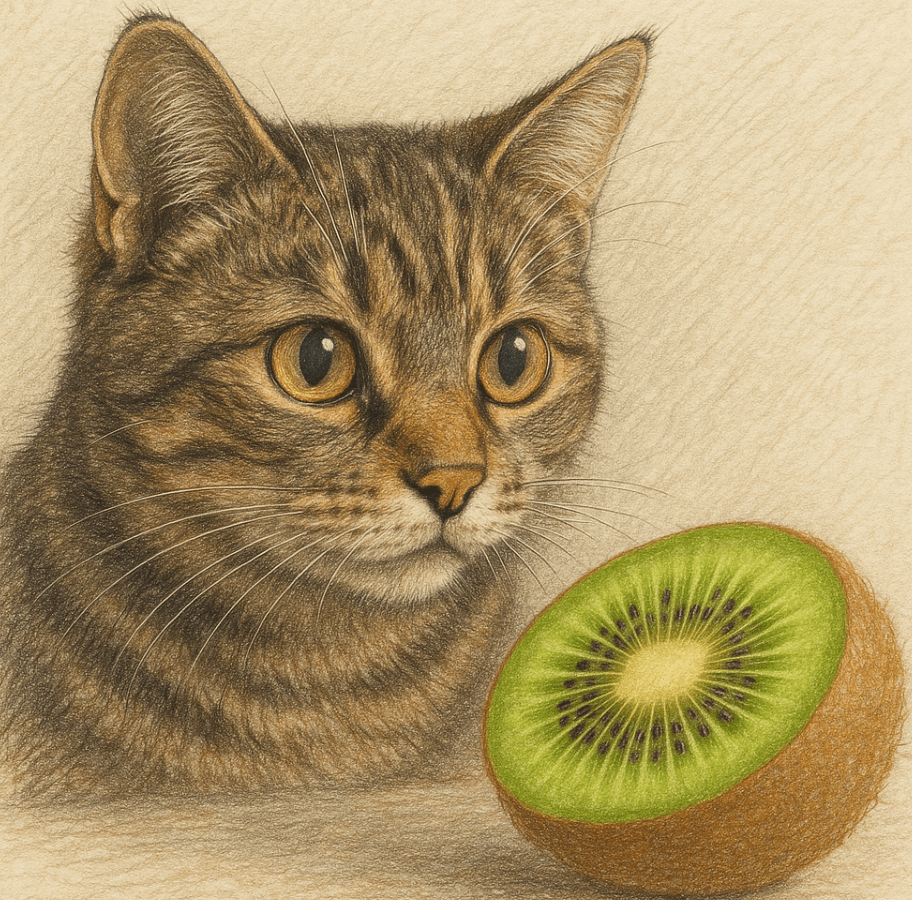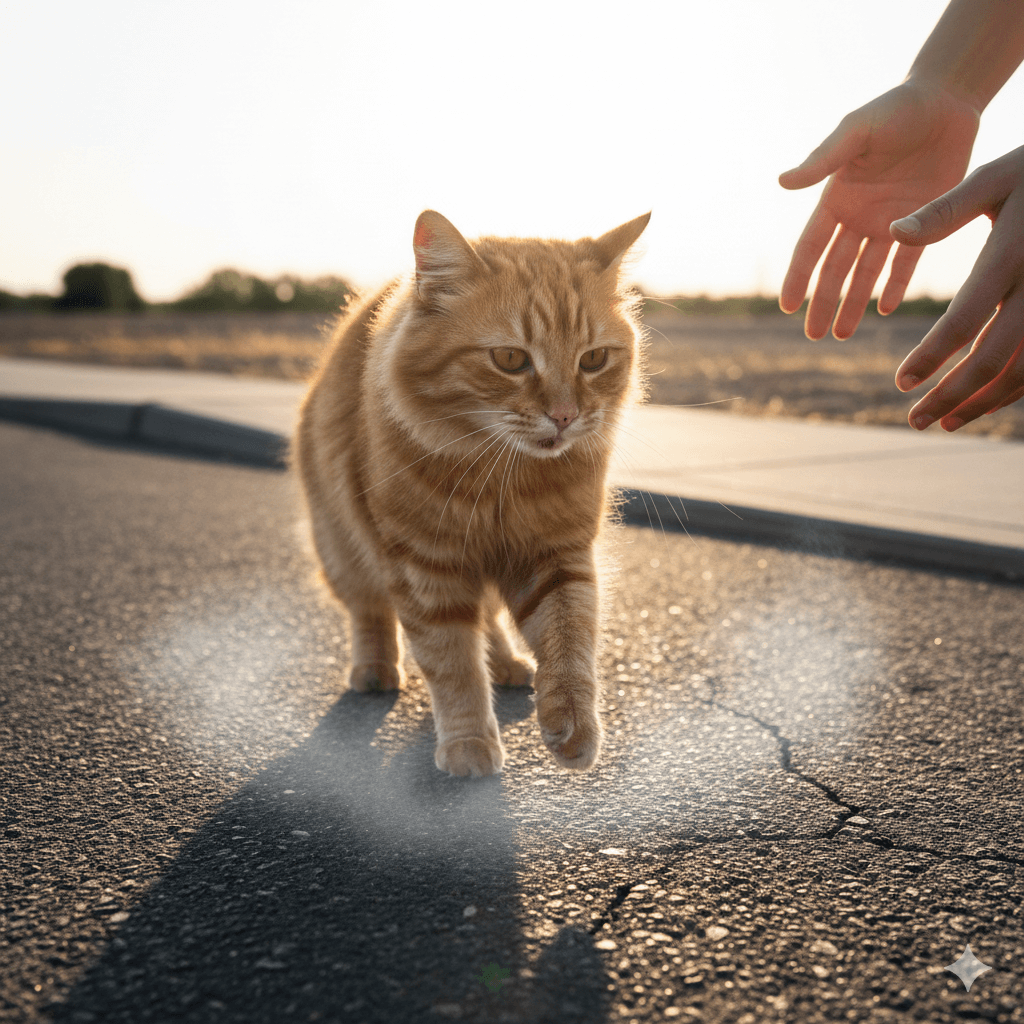Can Cats Eat Kiwis?
Kiwis are a delicious and nutrient-packed fruit enjoyed by many humans, but what about our feline friends? As a cat owner, you may wonder whether sharing a bite of this tangy treat with your furry companion is safe. Cats are obligate carnivores, meaning their primary diet consists of meat, but they can occasionally enjoy small amounts of certain fruits. However, not all human foods are suitable for cats, and kiwis are no exception. In this blog post, we’ll explore the potential benefits and risks of feeding kiwis to your cat, along with expert tips to ensure their safety and well-being.
Potential Benefits of Feeding Kiwis to Cats
While cats don’t require fruits in their diet, kiwis offer some nutritional benefits that might make them an occasional treat worth considering. Here’s what your cat could gain from a small piece of kiwi.
Rich in Vitamin C:
Kiwis are packed with vitamin C, which supports the immune system and promotes overall health.High Fiber Content:
The fiber in kiwis can aid digestion, though cats don’t need much fiber in their carnivorous diet.Antioxidant Properties:
Kiwis contain antioxidants that help combat free radicals, potentially reducing inflammation.Hydration Boost:
With their high water content, kiwis can contribute to your cat’s hydration, especially if they’re reluctant drinkers.Low Calorie Treat:
Kiwis are low in calories, making them a guilt-free snack option in moderation.
While these benefits exist, it’s important to remember that cats derive most of their nutrients from animal-based proteins, so kiwis should only be an occasional indulgence.
Risks of Feeding Kiwis to Cats
Despite their nutritional value, kiwis come with certain risks that every cat owner should be aware of before offering them as a treat.
Upset Stomach:
Cats have sensitive digestive systems, and the acidity in kiwis may cause vomiting or diarrhea.Choking Hazard:
The small seeds and fibrous texture of kiwis can pose a choking risk if not properly prepared.Allergic Reactions:
Some cats may develop allergic reactions, such as itching or swelling, after consuming kiwis.Sugar Content:
Kiwis contain natural sugars, which can be harmful to cats if consumed in excess.Toxicity Risk (Rare):
While kiwis themselves aren’t toxic, pesticides or artificial coatings on store-bought fruits could harm your cat.
These risks highlight why caution is essential when introducing kiwis into your cat’s diet. Always prioritize their safety over curiosity.
Check this guide 👉Can Cats Eat Blue Cheese? Best 7 Expert Tips!
Check this guide 👉Can Cats Eat Mealworms? Best 7 Expert Tips!
Check this guide 👉Can Cats Eat Centipedes? Best 7 Expert Tips!

Safe Fruits for Cats | Foods to Avoid Giving Cats |
|---|---|
Kiwi (in small, seedless amounts) | Grapes and raisins |
Blueberries | Onions and garlic |
Watermelon (seedless) | Chocolate |
Apples (core removed) | Alcohol |
Bananas (in moderation) | Dairy products (due to lactose intolerance) |
How to Safely Introduce Kiwis to Your Cat
If you decide to share a small piece of kiwi with your cat, it’s crucial to take precautions to minimize risks. Follow these steps to ensure a safe experience.
Start with Tiny Portions:
Offer a pea-sized piece of ripe kiwi to see how your cat reacts before giving more.Remove Seeds and Skin:
The seeds and skin can be difficult to digest; serve only the soft, inner flesh.Monitor for Reactions:
Watch for signs of digestive upset, allergies, or discomfort after your cat eats kiwi.Avoid Sweetened Variants:
Never give your cat processed kiwi products like jams or juices, which contain added sugars.Consult Your Veterinarian:
Seek professional advice before introducing any new food to your cat’s diet.
By following these guidelines, you can minimize risks while allowing your cat to enjoy a rare fruity treat.
Signs Your Cat May Not Tolerate Kiwis
Even if you take precautions, some cats may not tolerate kiwis well. Watch for these warning signs to act quickly if something goes wrong.
Vomiting or Diarrhea:
These symptoms indicate that your cat’s digestive system is struggling to process the fruit.Excessive Drooling:
Drooling could signal irritation or nausea caused by the kiwi’s acidity.Lethargy or Discomfort:
A sudden lack of energy or signs of pain might suggest an adverse reaction.Pawing at the Mouth:
This behavior often indicates that your cat is experiencing discomfort or has a foreign object stuck in their mouth.Refusal to Eat:
If your cat avoids food after trying kiwi, it could mean the fruit upset their stomach.
Recognizing these signs early allows you to seek veterinary care promptly, preventing further complications.
Common Mistakes to Avoid When Feeding Kiwis to Cats
Feeding kiwis to your cat requires careful consideration to avoid mistakes that could endanger their health. Here are some pitfalls to watch out for.
Offering Large Pieces:
Large chunks can be difficult for cats to chew and swallow, increasing the risk of choking.Ignoring Allergies:
Not all cats tolerate new foods well; failing to monitor for allergic reactions can lead to serious issues.Overfeeding:
Even small amounts of sugar can add up, so limit kiwi portions to prevent weight gain or digestive upset.Using Processed Kiwi Products:
Avoid jams, juices, or canned kiwis, which often contain additives harmful to cats.Neglecting Veterinary Advice:
Skipping a professional opinion can result in unknowingly harming your cat with inappropriate food choices.
Avoiding these mistakes ensures a safer and healthier experience for your cat.
Alternatives That Mimic the Benefits of Kiwis
If you’re hesitant about feeding kiwis, there are plenty of alternatives that mimic their benefits without the associated risks.
Blueberries:
These tiny fruits are rich in antioxidants and safe for cats in moderation.Watermelon:
Seedless watermelon provides hydration and a sweet treat that most cats enjoy.Apples (Seedless):
Apples offer fiber and vitamin C, but always remove the core before serving.Pumpkin Puree:
Plain pumpkin puree aids digestion and is a safer option for cats with sensitive stomachs.Cooked Carrots:
Soft, cooked carrots provide vitamins and fiber without posing a choking hazard.
These alternatives allow you to cater to your cat’s needs while keeping them safe.
Understanding Your Cat’s Natural Instincts Around Food
Cats are naturally curious creatures, and their instincts drive them to investigate new scents and textures. Understanding their behavior helps explain their reactions to unfamiliar foods like kiwis.
Hunting Behavior:
Wild cats focus on hunting prey, so domestic cats retain a preference for protein-rich diets over plant-based foods.Exploration Through Smell:
Cats rely heavily on their sense of smell to assess whether a food is appealing or potentially harmful.Selective Eating Habits:
Most cats are picky eaters, instinctively avoiding foods that don’t align with their dietary needs.Playful Curiosity:
Cats may bat or paw at new foods like kiwis, using play as a way to explore unfamiliar objects.Territorial Marking:
Chewing or licking novel items can sometimes serve as a way for cats to assert ownership or relieve stress.
By recognizing these behaviors, you can better address your cat’s needs in a safe and controlled manner.
Frequently Asked Questions About Cats and Kiwis
Can cats eat kiwi skin?
No, the skin is tough and fibrous, making it difficult for cats to digest. Always remove it before serving.
How much kiwi can I give my cat?
Limit kiwi to a small, bite-sized piece once in a while—never make it a regular part of their diet.
Are kiwi seeds safe for cats?
While not highly toxic, the seeds can pose a choking hazard or cause digestive blockages. Remove them before serving.
What if my cat accidentally eats a large piece of kiwi?
Monitor them closely for signs of distress and contact your vet if you notice any concerning symptoms.
Can kittens eat kiwis?
Kittens have even more delicate digestive systems than adult cats, so it’s best to avoid giving them kiwi altogether.
Prioritizing Your Cat’s Health When It Comes to Kiwis
While kiwis can offer some nutritional benefits, they should only be given to cats in moderation and with careful preparation. Understanding the potential risks and benefits ensures your cat stays healthy and happy. By monitoring their reactions and consulting your veterinarian, you can safely introduce small treats like kiwi without compromising their well-being. Remember, your feline friend relies on you to make the best dietary choices for them—so always prioritize their safety above all else.
Newfoundland Dog Personality: Best 7 Expert Tips! – Discover the gentle, loyal, and protective nature of this giant breed perfect for families.
Can Hot Pavement Burn Your Cats Paws? Best 7 Expert Tips! – Learn how to protect your cat’s paws from hot surfaces and prevent painful burns this summer.
Can Hot Pavement Burn Your Dogs Paws? Best 7 Expert Tips! – Learn how to protect your dog’s paws from hot surfaces and ensure safe summer walks.
Irish Wolfhound Size: Best 7 Expert Tips! – Discover the ideal height, weight, and care tips for this majestic giant breed. Learn how to manage their impressive stature responsibly.




